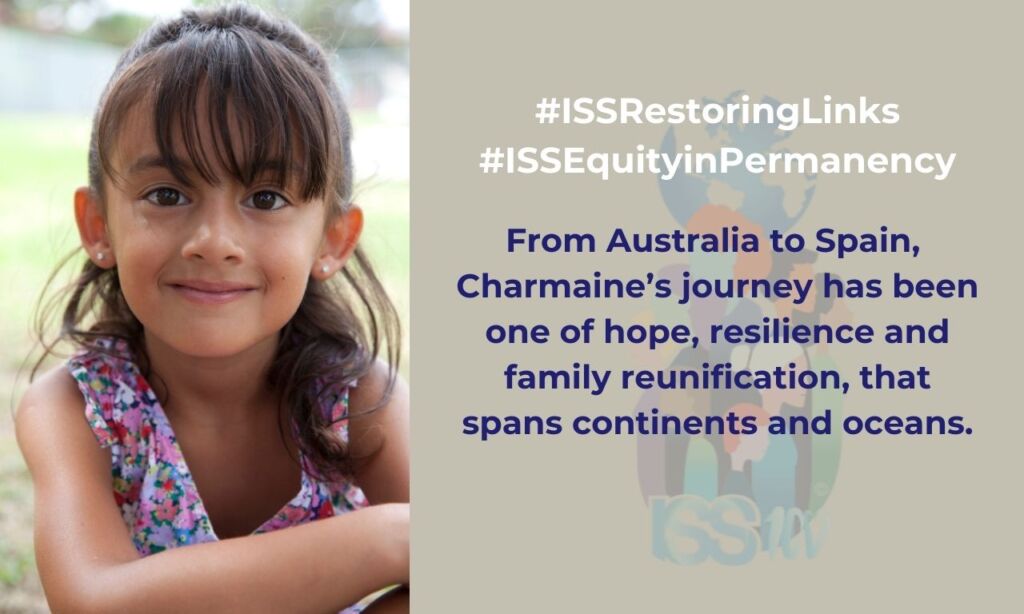
The story of five year old Charmaine
- Written by: Damon Martin, Deputy CEO ISS Australia and Chair ISS Casework Coordinators Group
- Restoring links
Charmaine* was born in Australia with dual Australian and Spanish citizenship and was placed in the sole care of her father under Family Court arrangements with weekly contact with her mother.
When Charmaine was 3 years old, her father was found deceased in his residence. The local child protection authority in Australia assessed Charmaine’s mother as an unsuitable carer for Charmaine and interim orders were made placing Charmaine under the Parental Responsibility of her half-sister’s mother. Annie*, Charmaine’s aunt in Spain also became a party to proceedings and stated she would like to have Charmaine placed in her care.
During a trip to Australia, local child protection workers met with Charmaine’s aunt Annie and completed a preliminary placement assessment, which was positive. The local child protection authority then required a more in-depth assessment of Annie and her home environment in Spain. ISS Australia reached out to ISS Spain to obtain a comprehensive kinship placement assessment through the local Spanish Child Protection Authority. The assessment was favourable and a year later Charmaine went to live with her aunt and extended family in Spain.
Charmaine continues to do well in her placement in Spain and is also connected to extended family members in Australia through regular video contact. They plan to reunite in Australia for a holiday in the next few years.
This case underlines ISS advocacy to keep children with families. Child protection experts, including ISS social workers around the world, widely acknowledge that those responsible for the protection of children should prioritise efforts to keep children with families. They offer increased support to these placements to ensure family members are able to fulfil their care responsibilities. ISS Members have therefore developed and published ‘Principles and Recommended Practices for Governments to Achieve Equity in Permanency for Cross-border families.’
Equity in Permanency refers to principles of child protection practice that prioritise the exploration of family placements, without discrimination of any kind, to achieve optimal long-term outcomes for the child. The principles seek to empower child protection partners globally to have a child rights approach and promote policies and protocols that ensure all family placement options are explored for any child who can no longer be cared for by their parents.
*pseudonyms used to protect client’s identity